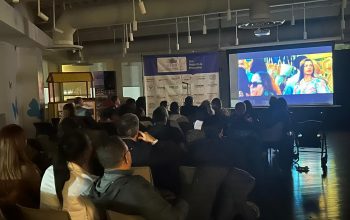news
“There is no Statelessness in the Dominican Republic”, an article by Dr. Leonel Fernández
January 19, 2016
The Haitian constitution provides for birthright citizenship via jus sanguinis.
In a recent Amnesty International report entitled “Without Papers, I Am No One: Stateless People in the Dominican Republic,” the authors charge that in our country there is a situation of statelessness.
In accordance with prevailing international legislation, a person is considered stateless when no state, within the remit
of its internal norms, considers him or her as its own national.
The situation of millions of people worldwide who have no recognized citizenship has incited the interest and awareness of the international community. Those who lack citizenship have no rights to a legal name, residence, education, health, or even to marry or form a family. It’s thus reasonable that an organization like Amnesty International should employ its prestige in support of such a noble
cause to protect human dignity and contribute to ending a situation as damaging to the human condition as is the lack of an individual identity.
Nonetheless, this is not the case of the Dominican Republic. In deeming the current situation in our country one of statelessness, Amnesty International is committing both a significant error of legal interpretation and a flawed historical evaluation.
In line with the constitutional and legal texts of the
Dominican Republic and Haiti, there do not exist, nor can there ever exist, descendants of either Dominicans or Haitians who are stateless.
LEGAL INTERPRETATION
In the case of the Dominican Republic, the concept of citizenship is covered by Articles 18 to 20 of the Constitution. In essence, it grants the right of citizenship by virtue of blood (jus sanguinis); by virtue of territorial birth (jus soli); by matrimony, and by naturalization.
As
such, all children of Dominican parents are Dominicans, regardless of where they are born, as are all people born on Dominican soil.
Naturally, exceptions to the latter are the children of members of other nations’ diplomatic and consular corps, as well as the children of foreigners in transit through or illegally resident in Dominican territory.
That said, if the children born on Dominican soil to members of diplomatic and consular corps, to
foreigners in transit, or to illegal residents of the country are not considered Dominican, does that mean they are stateless?
No, not at all. And this is because those children whose births have occurred within the territory of the Dominican Republic will carry the nationality of their parents, as indicated by the laws of their respective countries, which generally involve the submission of a simple declaration of birth before their respective consulates.
In the case of Haiti, with regards to matters of citizenship, its own constitution indicates that “any person born of a Haitian father or Haitian mother who are themselves native-born Haitians and have never renounced their nationality possesses Haitian nationality at the time of birth.”
As can be observed, the Haitian Constitution provides for birthright citizenship via jus sanguinis. This means that any descendant of Haitian parents, born
anywhere, is considered Haitian from the moment of birth.
The Haitian constitution does not provide for citizenship via jus solis, nor by matrimony, nor by naturalization, and thereby adopts a much more restrictive stance than its Dominican counterpart in terms of specifying who is a Haitian national.
Despite the fact that the determination of who are nationals of a country sovereignly corresponds to the domain reserved to each state, since the Second
World War a corpus of international law seeking to protect human rights has evolved.
This implies that there must be compatibility between states’ sovereign exercise of power and the effective protection of the international dimension of human rights.
Clearly, within this context fall both citizenship rights and the search for legal instruments to define nationality and establish mechanisms for the reduction of statelessness. This is evidenced
by the various treaties, conventions, and jurisdictional decisions adopted by the International Court of Justice and regional human rights courts.
INTERNATIONAL DIMENSION
It was Article 15 of the Universal Declaration of Human Rights of 1948 that first stipulated that “everyone has the right to a nationality. No one shall be arbitrarily deprived of his nationality nor denied the right to change his nationality.”
In the
Americas, this in turn was established by Article 20 of the 1969 American Convention on Human Rights, which indicates the following:
“Every person has the right to a nationality. Every person has the right to the nationality of the State in whose territory he was born if he does not have the right to any other nationality. No one shall be arbitrarily deprived of his nationality or of the right to change it.”
From the quoted texts are
derived the principle of the right to citizenship held by all people and the fact that no one can be deprived of that right nor can it be changed arbitrarily.
But equally important is the stipulation that everyone has a right to the nationality of the State in which he or she was born if he or she has the right to no other nationality.
The latter is key to understanding the legal error Amnesty International has committed in deeming that there are
persons of Haitian descent who are stateless in the Dominican Republic.
This would have been correct should those born on Dominican soil have no possibility or alternative of being considered nationals of another State by birthright, in this case, the State of their parents.
But that is not the case. All descendants of Haitian nationals born in the territory of the Dominican Republic, like any other nationality, have the power, in line with our Law 285
on Migration, to be registered in the consular offices of their respective countries.
Amnesty International denounces the fact that our national migration law provides for a book to be kept registering children born to nonresident foreigners. The organization’s hidden intention is for Dominican nationality to be granted to all born in national soil – that is, that jus soli be established with no exceptions of any kind.
This constitutes a
proper interference in the internal affairs of the Dominican Republic, and, at the same time, a misunderstanding of the most basic principles of international and comparative law.
As is well known, of the 193 member states of the United Nations, more than two-thirds do not grant unconditional birthright citizenship to all children born in a state’s territory. Instead, there are certain exceptions, as in the case of the Dominican Republic.
Although certain sectors in the international sphere have tried to accuse the Dominican Republic of having arbitrarily divested thousands of Haitian descendants of their nationality by virtue of Ruling 168-13 of the Constitutional Court, in fact this was overruled with the approval of Law 169-14.
Based on this legal provision, it was deemed an error on the part of the Dominican state to have granted birth certificates to descendants of foreigners with irregular
migratory status in the Dominican Republic, and therefore, as an act of reparation, it restored their Dominican citizenship and validated all actions carried out during their civil lives.
Furthermore, this same legal text provided for a mechanism to regularize the migration status of thousands of people who held no form of identification.
Nevertheless, that important disposition, without known precedent in the international sphere, is being ignored in
certain circles in the international community, among them Amnesty International.
In truth, what is being sought is the entry into a new epoch in which the Dominican State is pressured, through baseless accusations, to recognize persons as Dominican nationals who in fact are not, and who cannot be deemed stateless, given that they are invested with the legitimate right to hold the nationality of their parents.
Hence, we do not agree on the findings of
the Amnesty International report, despite our admiration for its exemplary work in the fight to protect the dignity of human beings.
Related links:
http://leonelfernandez.com/articulos/en-republica-dominicana-no-existe-la-apatridia/





